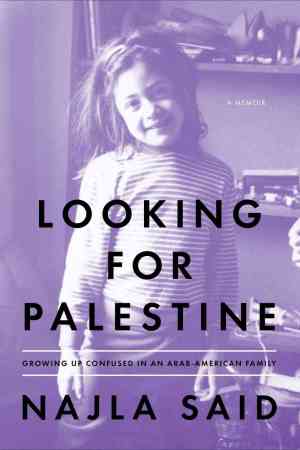I received an advance reading copy of ‘Looking for Palestine. Growing up confused in an Arab-American family‘ by Najla Said as part of a LibraryThing giveaway.
I know of Edward Said because I read part of the introduction he wrote in Joe Sacco’s Palestine, where I think he also mentions his (most well-known work), Orientalism. I haven’t read either books, though Palestine has languished in my TBR pile for years. Orientalism, I know nothing about – I haven’t read the book, and, now, I am not really sure if my understanding of its meaning is entirely correct. Also, I always thought that Edward Said’s last name was pronounced ‘Sed’ (as in the past tense of ‘say’).
For me, it is a good thing, really, to learn about the extent of my ignorance (on occasion; very often might inflict serious damage to my self-esteem). Knowing that I know not, is many times the first step to repairing the state of affairs. In this case, I realized that I knew next to nothing about the history and the politics of the Palestine-Israel region. In that context, I don’t know what the politically correct terms were/are, nor do I know anything about what it means/meant to be an Arab (or Arab-American) in a country that is vocally pro-Israel. This book is not an annotated history of Palestine, but I am grateful to it for bringing my uninformed state to my attention.
Najla Said, as you know or might have guessed, is Edward Said’s (pronounced ‘Sayeed’; did I hear a ‘duh’?) daughter. Edward Said, she says:
is the author of Orientalism, the book that everyone reads at some point in college, whether in history, politics, Buddhism, or literature class…It’s mainly because of my father that people now say “Asian American” instead of “Oriental.”
Whoa.
Najla’s famous father is Palestinian, and her mother is Lebanese. They are Arabs. They are also Christians. Growing up with a multitude of identities, and yet not being able locate one she was comfortable in; confronting the realities of both being associated with what was considered a “barbaric” and “backward” clan while also not fitting into others’ notions of the same clan; growing up fairly privileged in a much less ethnically diverse New York than it is now, Najla spent much of her childhood and later years dealing with the anguish of her inner turmoil.
Most of us are guilty of sweeping generalizations, some totally harmless, others less innocuous. For instance, Najla writes that “An Arab is a person whose native language is Arabic.” She also writes that “[by 1979] the words “Arab” and “Muslim” were already synonymous with “crazy, violent terrorists” (an unfair generalization). Assumptions related to terrorism aside, the words “Arab” and “Muslim” are considered synonymous, to some extent, even today. Just as “Indians” are immediately associated with the “bindi” (a harmless assumption, really). Najla speaks of being asked why she didn’t have “a dot” on her forehead at school, and replies, “I am not Indian!!!”.
Reading any work of non-fiction, and especially memoirs, requires the reader to take a leap of faith and presume reasonable honesty and sincerity in the writer’s depiction of life events. Najla’s voice is beautiful in its simplicity, and seems entirely her own, and her famous daddy is just that, her daddy,
Now I’ll be sure to read both Orientalism and Palestine.



